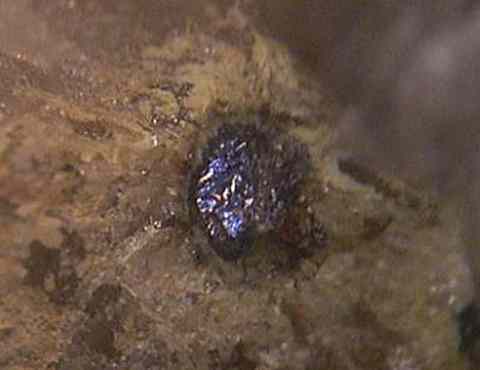Bismuth
Hirukawa, Nakatsugawa city, Gifu pref., Japan
Source for bismuth

Field of view: 10 mm. Bismuth associated with Bi-bearing secondary minerals. The pinkish-silver grain exhibiting perfect cleavage is bismuth. The thin earthy black crust over bismuth is zavaritskite. The thin pale brown crust over zavaritskite is bismutite. The massive translucent part at the upper left is gangue quartz. The radial group of platy white crystals around bismutite are muscovite.
Recovered from a quartz vein of a pneumatolytic deposit formed near the boundary between welded tuff and S-type (Ilmenite-series) granite, members of a caldera complex. Formed in the Late Cretaceous (70 Ma).
Bismuth from this location was described in 1938.
Other localities
- Karasawa Mine (Pneumatolytic, Massive)
- Takane Mine (Pneumatolytic, Massive)